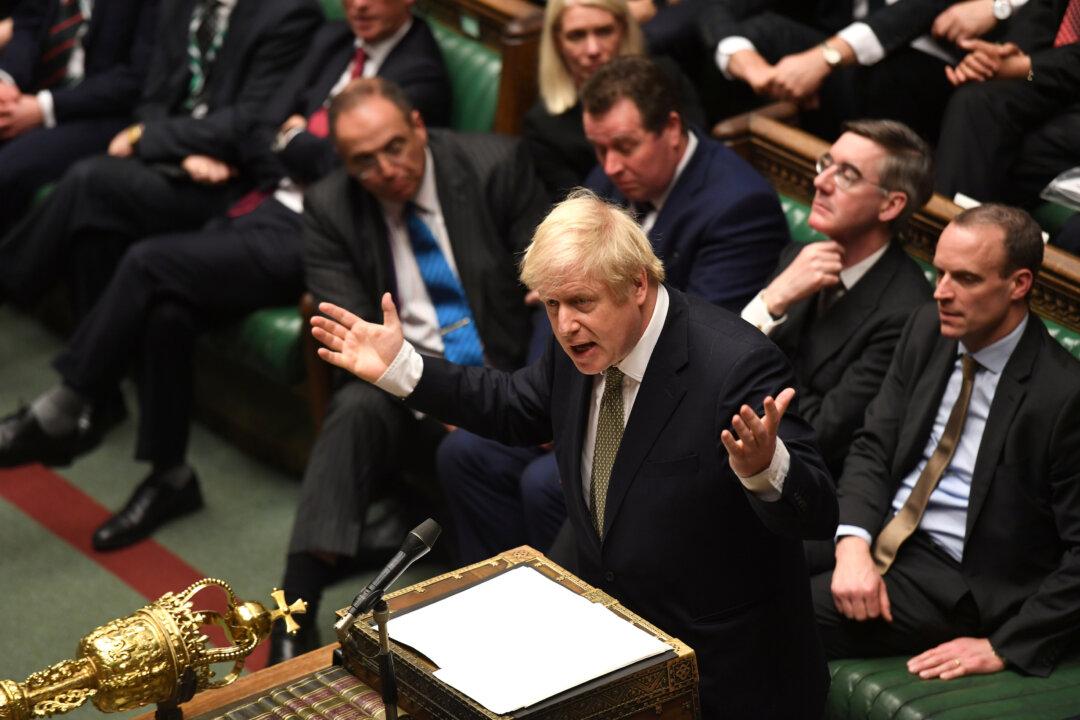LONDON—Prime Minister Boris Johnson won approval for his Brexit deal in parliament on Dec. 20, the first step toward fulfilling his election pledge to deliver Britain’s departure from the European Union by Jan. 31 after his landslide victory.
Lawmakers voted by 358 to 234 to pass the second reading of the legislation, underlining Johnson’s large majority in parliament that should ensure a smooth ratification of the divorce deal to implement Britain’s biggest policy shift in more than 40 years.





